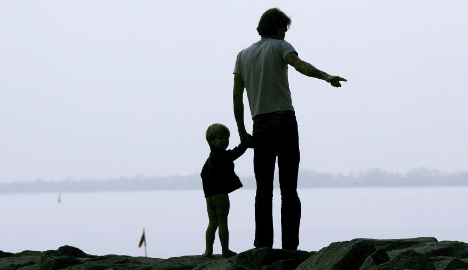Every child knows that mum and dad are different and boys and girls need, want and love those subtle differences between parents. Adults, on the other hand, are pretty unsure about what the guiding principles of parenthood should be.
During break-ups and custody battles, women, whether they are housewives, employed, or single parents, are seen mainly as ‘mothers’ in Germany and they usually win the legal battle by virtue of this.
Our ideas about what is motherly and what motherhood means are much clearer than they are about ‘fatherhood’ and ‘fatherly’ qualities. Men choosing to be fathers have become the weaker sex in modern German society.
The Constitutional Court ruling on Tuesday cannot suddenly suspend this crucial distinction, despite making it easier for unmarried father to win joint custody of their children. But the father is still important – because the emphatic lessons and experiences of women’s emancipation count for fathers too. More rights mean more responsibility – in this case taking care of children.
Traditional father roles have been steamrollered, first by the catastrophes of the last century and then by the women’s liberation movement. The authoritarian patriarch, who thinks dealing with small children is unmanly and is mainly responsible for handing out punishments, is long since outdated.
The patriarchal figure is even disappearing among Germany’s immigrant populations, which have often grown up with such archetypes. Nowadays young women with children have few qualms to leave such machos. This female victory march has also destroyed the idea of the “family-breadwinner,” a figure who dominated the first decades of post-war Germany, despite the enshrinement of equality in the constitution.
And the ideal of the fatherly “protector” – the man who shows the growing child the world and guides him along the path to working life – is no longer untouchable either. Mothers can and do perform this role too – and much too often they do it alone.
But an ideal “androgynous” parenthood, in which parents are not only equal before the law, but actually equal, has not yet been established despite a growing number of “modern” fathers. The more diffuse our image of fatherhood has become, the clearer we see that fathers, or father figures, are missing from our families, our childcare facilities, and our schools.
The lack of a father is a disadvantage that many single mothers feel painfully because they cannot make up for it, despite their best efforts. That a lot of mothers engage in long legal battles to separate children from their fathers only makes matters worse.
Perhaps young girls and boys have a better idea of what makes a good dad than men and women. But adults should at least know that fatherhood only develops and proves itself worthy through interaction with children – it does not come out of the economic, social or legal domination of women. Fortunately the old patriarchal roles have disappeared.
But that makes room for a new, hopeful development that can be seen in court custody battles, in applications for parental leave benefits, and in many families. Men really want to be fathers, not patriarchs, breadwinners or disciplinarians.
The fundamental differences remain, however. In all cultures and societies, mothers have been given the role of looking after children. Mothering means love, care, and self-sacrifice. But until the invention of paternity tests, there was not even the slightest certainty about what and who a father should be.
Instead, there were just powerful cultural mores that have changed enormously over the centuries. It is also a kind of emancipation if men can be fathers without having to be patriarchs and breadwinners first. But mothers have to want that too.
This commentary was published with the kind permission of Berlin newspaper Der Tagesspiegel, where it originally appeared in German. Translation by The Local.



 Please whitelist us to continue reading.
Please whitelist us to continue reading.
Member comments